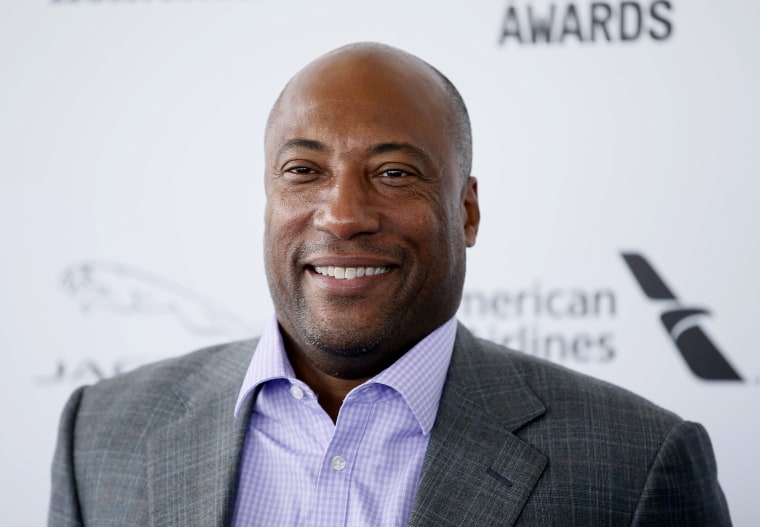A single section from a 150-year-old law could significantly change the landscape of cable television If the budding media mogul Byron Allen has his way.
The 55-year-old African-American comedian and CEO of Entertainment Studios has been waging war on traditional cable network operators for years now, and he scored a major victory recently when a U.S. District Court ruled last week that his $10 billion lawsuit against Charter Communications, which he alleges has shown a deliberate preference towards white-owned programmers, could go forward because of a provision in the 1866 Civil Rights Act.
Section 1981 of the 1866 Civil Rights Act, combined with the 14th Amendment, was supposed to protect the recently freed slaves from facing racial discrimination when they tried to go into business for themselves.
The ruling was a breakthrough for Allen, who saw a similar effort come up short earlier last year when he attempted legal action against Time Warner Cable and Comcast, NBC News' parent company, but had his suit tossed out because it "failed to allege any plausible claim for relief." He did however, eventually reach a settlement with AT&T, and was able to find a home for some of his programming on DirectTV and U-verse.

Besides the potential benefits to his own bottom line what is Allen -- whose company is, according to The Hollywood Reporter, raking in $100 million a year -- hoping to achieve by taking on television's status quo?
"What I really want is for corporate America to do business with black America," Allen told NBC News on Monday. "This is the pathway to a stronger America and better race relations."
Allen, whose company has 40 syndicated TV series and seven different HD networks under its name, said he was moved to take action in part by the late Coretta Scott King, who once told him that the most significant unrealized dream on her husband Dr. Martin Luther King's civil rights bucket list was "economic inclusion."
Related: Little 'Meaningful Change' in Hollywood Diversity: Report
"As long as you don't have money or education, this country will treat you like a stray dog," said Allen, who bristles at critics who have challenged his methods of exacting racial balance in the boardroom.
"Everyone is responding to the 'what' not the 'why,'" he said. "Why is Eric Garner on the sidewalk selling cigarettes, instead of owning the store? We're not going to talk about it anymore, we are going to do something about it."
"Everyone is responding to the 'what' not the 'why.' Why is Eric Garner on the sidewalk selling cigarettes, instead of owning the store?"
His fight could be construed as a proxy fight in a much larger ongoing battle for black entrepreneurs and creative people pushing for more of a foothold in an industry which has long benefited from their talent and cultural influence, without necessarily providing opportunities for minority-owned entities.
But according to Charter Communications Allen's lawsuit simply has no merit. “This lawsuit is a desperate tactic that this programmer has used before with other distributors," they told NBC News in a statement. "We will not comment further at this time.”
The media company did recently hire a new Chief Diversity Officer and just this month they sponsored the annual National Urban League Conference, who they teamed up with to champion diversity.
“We’re proud to support organizations that have a track record of working in communities," Charter Vice President of External Affairs C. Howie Hodges said in an October 13 press release. "At Charter we have a history of partnership and engagement. Our support of NUL and others demonstrates our commitment to being a part of the communities where we work, serve and live.”
Related: Emmys Honor and Celebrate Diversity, in Contrast of Oscars
Nevertheless, following the high profile snubbing of African-American actors and actresses at the Oscars for the second year in a row, there has been increased attention and scrutiny about the lack of diversity both in front of and behind the camera in film and television.
And while the Academy Awards, for instance, has taken great pains to address these issues, there hasn't necessarily been legal grounds to force the industry's hand -- until perhaps now.
Should Allen emerge victorious in this case it could set a real precedent for other black owned businesses seeking a seat at the table in white-dominated fields.
"This is a game changer," said Allen. "Black America now has the power to achieve economic inclusion, which we rightfully deserve because we built this country. This is a conversation that white America doesn't really want to have."